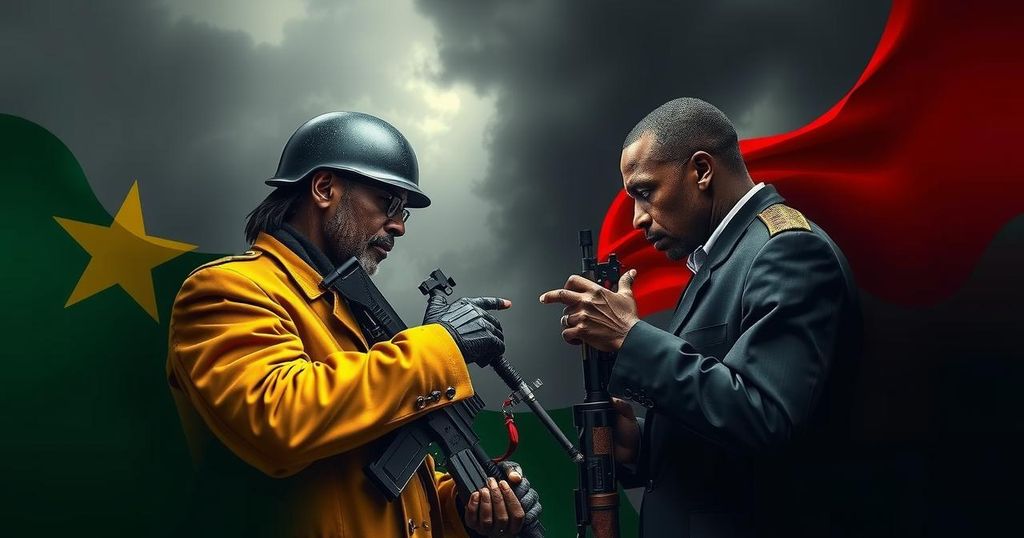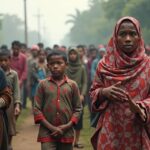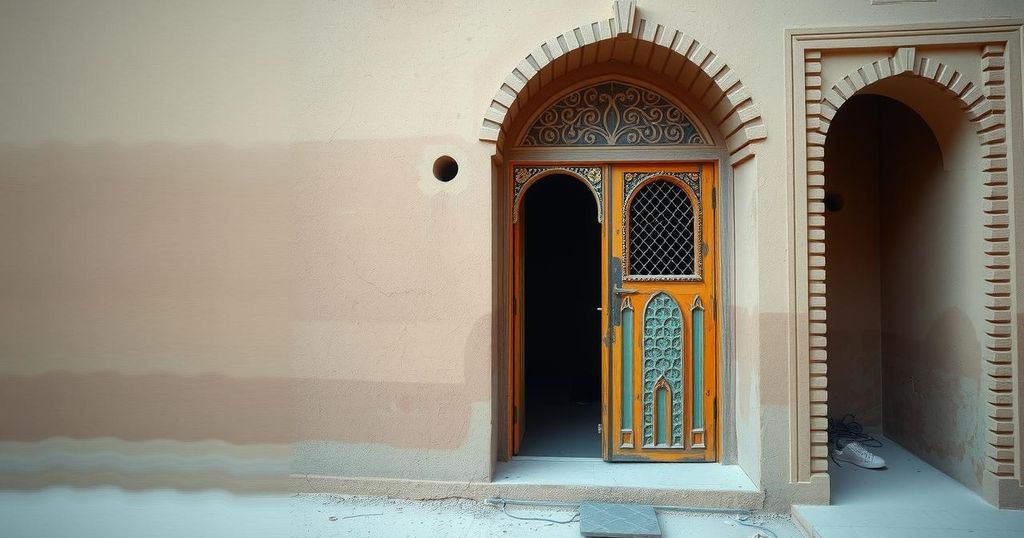Renewed Violence in Eastern DRC Provokes Angolan Concerns and Calls for Ceasefire Compliance
Renewed fighting in eastern DRC has troubled the Angolan government, which was seeking to solidify a ceasefire following a brief respite in hostilities. Angola condemned the violence as a breach of the ceasefire agreements established in August and stresses adherence to peace negotiations between the DRC and Rwanda. Recent clashes have exacerbated the humanitarian crisis, leading to significant civilian displacement and casualties.
The resurgence of violence in eastern Democratic Republic of Congo (DRC) has raised alarms in the Angolan government, coinciding with Luanda’s efforts to establish a longer-term ceasefire after a brief pause in hostilities over the past month. In a press release issued on Tuesday, the Angolan authorities described the renewed conflicts as a blatant breach of previously agreed upon ceasefire accords, which officially took effect at midnight on August 4, following a ministerial meeting on July 30. Angola has been actively engaged in mediating the discord between the DRC and Rwanda, with both nations accusing each other of facilitating rebel factions intent on destabilizing their regimes. The latest discussions took place two weeks prior in Luanda, at which both parties reaffirmed their commitment to pursue a peaceful resolution. The DRC government assured that it would prevent the FDLR rebels, considered adversaries by Rwanda, from receiving any form of support from the Congolese army (Fardc), contingent upon Rwanda ceasing its backing of the M23 rebel group. In response to the escalating violence, Angola expressed its unequivocal condemnation, stating, “Angola rejects and strongly condemns this hostile act, which undermines the ongoing efforts to find a lasting solution to the conflict in eastern DRC,” while emphasizing the necessity for all involved parties to adhere to the ceasefire, as reiterated in the September 14 ministerial meeting. Reports of violent confrontations emerged on Sunday and Monday in the vicinity of Kalembe village, where clashes erupted between the Wazalendo self-defense group, which allies itself with the Congolese army, and the M23. The Congolese military allegedly regained control of Kalembe amidst the chaos. Juvenal Munubo, a former Member of Parliament from Walikale, noted, “I have learnt that the NDC Rénové (Kivu armed group), with logistical support from the Fardc, has regained control of the town of Kalembe. I call on the Fardc and the patriotic resistance fighters to consolidate this victory.” MP Willy Mishiki warned that the rebels are seeking control of additional provinces, namely South Kivu, Tshopo, and Maniema, situated in the eastern and northeastern regions of the country. He further criticized the DRC officials for their silence on the collapse of the truce, querying, “What about the ceasefire agreed in Luanda?” While a ceasefire had been largely successful since its implementation in early August—facilitating the return of some displaced persons who deemed their home environments safer than overcrowded camps—political dialogues remain stalled between the DRC and the M23. Ongoing negotiations are, however, proceeding between the DRC and Rwanda, with the most recent foreign ministers’ meeting on October 12 leading to an agreement to address lingering security matters concerning a proposed draft peace agreement. Angola continues to advocate for restraint to prevent any escalation of the conflict, which exacerbates the dire humanitarian situation in eastern DRC. It reaffirmed its dedication to resolving the crisis within the framework of the initiative known as the Luanda Process, orchestrated by President João Lourenço under the auspices of the African Union. Both Kigali and Kinshasa have committed to establish an ad hoc verification mechanism aimed at overseeing peace efforts, with plans for this new body to be officially inaugurated in Goma, DRC, by November 5, 2024. The recent violence has led to the wounding of at least 14 civilians, prompting many to flee their homes. According to the Office of the United Nations High Commissioner for Human Rights, projections indicate that 940,000 individuals may be displaced in 2024 alone, contributing to a staggering total of nearly seven million displaced persons in the DRC. This enduring conflict, coupled with the mass displacement, has resulted in extreme overcrowding and severe human rights violations, including sexual violence, particularly affecting civilians in North Kivu.
The situation in the eastern DRC has been characterized by prolonged conflict, with various armed groups vying for control and compelling numerous civilians to flee their homes. The DRC struggles with the M23 rebel group and other factions that have exacerbated an already critical humanitarian crisis. Angola’s role as a mediator is vital, as it strives to foster dialogue between the conflicting parties and establish peace in the region. The prior cessation of hostilities provided a fleeting sense of stability, allowing some displaced individuals to return home. However, the recent renewal of fighting undermines these peace efforts and poses significant challenges to humanitarian conditions.
The recent outbreak of violence in eastern DRC, coming shortly after a tentative ceasefire, poses severe risks to ongoing peace negotiations and humanitarian conditions. Angola’s condemnation of the hostilities highlights its position as a mediator striving to maintain regional stability. Continued efforts by Angola and active negotiations between the DRC and Rwanda are crucial to realizing a long-term resolution that can prevent further displacement and suffering among civilians.
Original Source: www.theeastafrican.co.ke








Post Comment